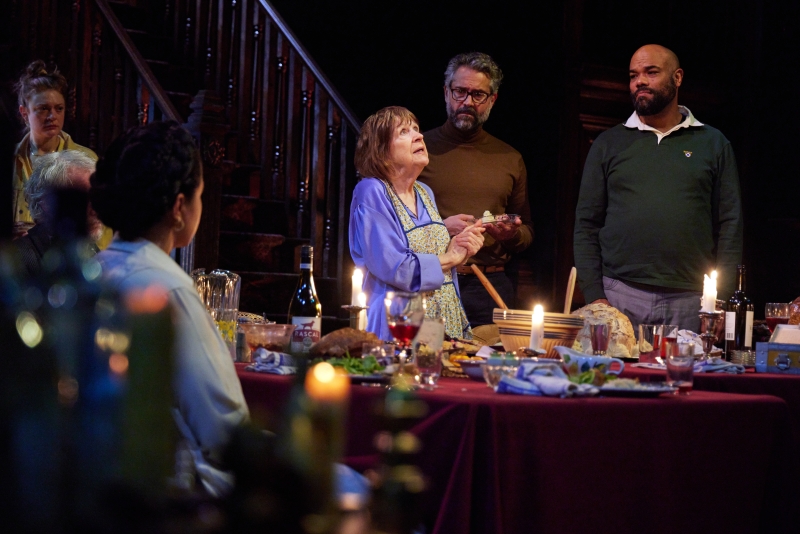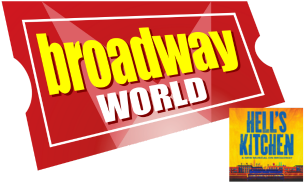Sunday Morning Michael Dale: The Fire This Time Festival's 13th Year of Spotlighting Early-Career Playwrights From The African Diaspora
Also, Paper Kraine's unique handling of triggers and an appreciation for the endearing presence of Marylouise Burke
Opening number...
.While it's common practice for Paper Kraine's co-producer and host Lizzy Ana Lincoln to offer warnings regarding subject matter, sexual content and other possibly triggering elements before performance pieces presented in their monthly shows, at their June showcase, titled Do You Queer What I Queer, she took a moment to do something I don't think I've ever seen done at a performance. She assured audience members that it's okay to step into the lobby and not watch a performance that may be upsetting you.
We often think of walking out in the middle of a show as a sign of contempt, but at Paper Kraine, their mission to nurture artists and give them the freedom to create apparently includes compassion for those who decide that a certain piece may not be for them.
To quote Lincoln, "You're a part of this process and we're all learning."
Back in January, I wrote about my first visit to one of Paper Kraine's monthly shows...
...a curated evening where stage time is offered to a variety of artists to create something based on a pre-determined theme, and after my second helping I'm convinced it is one of the most enjoyable theatre bargains in town. Admission is a suggested donation of $10 with proceeds for every show donated to a different social service non-profit. (The Ali Forney Center, protecting LGBTQ homeless youths, was the recipient this time and extra cash was raised when an abandoned comforter found backstage was auctioned off.)
June's program included excerpts from playwright Reuven Glezer's Off We Go, about a cosmonaut and a homeless youth in a Soviet psychiatric institution for the politically radical, Catie Chan's Peasant, presenting a dystopian view of New York as one big Amazon warehouse, and drag king Hugh Mann Race's Bird Watching, a funny, lip-synched bit of conservation-minded silliness.
While I very much admired Adin Lenahan's Disney Adult at my previous Paper Kraine visit, I wasn't quite sure how to write about his The Bottom's Bible, which followed Lincoln's words about triggers. I'll say the least controversial part of it is that it begins with Lenahan presenting themself as a monk who was kicked out of a monastery for being a bottom. The author/performer describes it as "a comic blasphemy exploring bottom and femme erasure, and a two-thousand year old book that still controls our narrative" and while I support Lenahan's position as a marginalized person expressing justifiable anger, there was one moment that, I'll just say, wasn't for me.
But maybe it, and the rest of The Bottom's Bible, is for you. You can find out when Lenahan performs it at Dixon Place on July 23rd.
With a name lending new urgency to a rhyming couplet from the African-American spiritual "Mary, Don't You Weep" ("God gave Noah the rainbow sign / No more water, the fire next time")...
...the annual Fire This Time Festival has produced dozens of ten-minutes plays in its mission to "provide a platform for early-career playwrights from the African diaspora to explore new directions for 21st Century Theater".
This afternoon at 3:00 is the closing performance of the festival's 13th edition (tickets $20 or what you can afford, in-person or streamed), a lively and conversation-stimulating collection of pieces co-directed by Zhailon Levingston and Tracey Conyer Lee, featuring an excellent ensemble of actors.
Not being of the African diaspora, myself, I naturally wasn't familiar with all of the issues presented, which is always an exciting aspect of live theatre, but at least a couple of times I was struck by the way a subject I was familiar with came at me from an unfamiliar viewpoint.
In Fedna Jacquet's Girlfriend, Denise Manning and the playwright get the program started with a burst of comedic energy, even though the story involves how one of them has split with her boyfriend because of his insistence that Black men have it harder than Black women and the other is dealing with a claim that her lineage doesn't qualify her to be called African-American.
In Marcus Scott's Wookies in the Wilderness, two best pals (Anthony Goss and Ricardy Fabre) battle with lightsabers while prepping for one's Eagle Scout Wilderness Survival Test, but the weapons in their hands eventual become less fictional. Phillip Christian Smith's Mt. Sinai has two women (Marjorie Johnson and Patricia R. Floyd) forming a bond though being chemo friends and in Lisa Rosetta Strum's By The Way, a straight woman (Jacquet) has her doubts when her closest friend, a man who has always identified as gay (Fabre) announces that he's bisexual and wants a romantic relationship with her.
Rachel Herron's Red Red Wine takes an twist reminiscent of Edgar Allan Poe when an aspiring sommelier (Manning) asks her mentor (Floyd) about her past and in Agyeiwaa Asante's Wildest Dreams, two ghosts (Johnson and Goss) inhabiting a former plantation turned tourist attraction wait for their time to cross to the other side.
Marylouise Burke was in her 60s the first time I saw her on stage...
...nearly twenty years ago when she originated the title role in David Lindsay-Abaire's Kimberly Akimbo, the straight play that has been adapted by the author and Jeanine Tesori into a Broadway-bound musical.
Playing a teenager born with a condition that made her body age four times the normal rate, Burke seemed perfectly natural exuding unbounded energy while dressed in bright colorful fashions and chatting millennial lingo with the much younger actors playing her friends. It wasn't until the plot required her character to dress conservatively and tone down her youthful glow in order to pass as an elderly woman that her presence seem unnatural.
I remember a disappointed gasp from the audience when, late in the play, she shyly made her first entrance in her elderly garb, the character seeming embarrassed and on the verge of tears as both she and the audience were reminded of how little time the endearing free spirit likely had left.

Omar Metwally and David Ryan Smith
(Photo: Jeremy Daniel)
In the two decades since, I've been frequently charmed by the endearing, free-spirited presence Marylouise Burke has given to her stage portrayals, and her current assignment in Brian Watkins' Epiphany is a perfect showcase.
In a production that looks like a gothic horror story (John Lee Beatty's gloomy mansion on a snowy night), sounds like a drawing room comedy (educated people bantering about on a variety of complex subjects) and even lifts a bit from James Joyce's The Dead, Burke is the oddball ethereal presence in director Tyne Rafaeli's production, nearly floating in the loose-fitting ensemble supplied by designer Montana Levi Blanco.
The plot has Burke's character, Markan, throwing a dinner party for a group of friends, either in celebration of the Epiphany, or to celebrate that the intended guest of honor, a writer who has been suffering deep depression, has had an epiphany. Either way, she intends to have the event run like clockwork in accordance with an emailed agenda that nobody seems to have read; thus everyone is shocked and distrustful when Markan points out that one of the conditions of the party is that everyone must surrender their cellphone to a lockbox.
Remarkably, Brian Watkins' comedy/drama/mystery/allegory/I-don't-know goes on for two intermissionless hours with little resembling a dramatic arc, and a lot of threads remaining loose, yet it's quite enjoyable.
"I'm sorry none of it made sense," Markan tells her guests at the end of the evening. But maybe if it did make sense, it wouldn't have been as much fun.
Curtain Line...
In the summer of 1965, in Dallas, Texas, Raul Julia played Conrad Birdie. Now, that's a reason for inventing a time travel machine.
Videos

